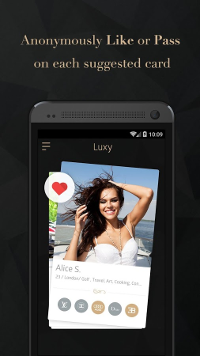A recent article in XO Jane was from a female online dater with a dilemma: she can’t seem to get any responses to her online dating profile. “Online dating has made me feel more alone and rejected than ever,” she said, noting the twenty emails she sent to potential matches with zero responses.
She is mystified by the lack of responses, something that happens to men on a regular basis but a lot less often to women. It does shake your confidence when you put yourself out there and receive no feedback, but why does it become an interesting story when it happens to a woman, but is still a regular occurrence for a man?
There is a double standard with online dating. Men have to reach out far more than women, and they get far more rejections and radio silence. Perhaps there is something to learn here about giving people a chance.
The writer does admit she got messages from a few men who “weren’t her type.” While I’m sure she reached out to the men she found most attractive, I can only assume the guys on the website were doing the same. And if she isn’t going to give a chance to the guys who messaged her, then why should she expect others to give her a chance?
Dating is a numbers game when you are reaching out to people online – you have to put a good amount of effort in, and depending on the site, use its features to your advantage. For instance, if it is OkCupid, answer a lot of questions and post your own for other site users. Start a conversation. Engage with the other online daters. If it’s eHarmony, check your matches every day and complete your entire profile and questionnaire before you opt out. If you are doing Match.com, then make sure you are checking all of your matches, posting new pictures, and changing your profile description on a regular basis to engage new members.
There are so many people online dating that sometimes it can be difficult to stand out from the crowd. But you have to make the effort, use the tools/features provided, and be diligent about checking your matches and reaching out to as many potential dates as possible, even if you aren’t sure about their profile. Remember, someone could be judging you for one line, like if you admit to “liking 90’s music” or are “a fan of the Muppets and cats.” So try not to apply the same judgment to others. Give everyone a chance, even if something in his profile doesn’t click with you.
People are more interesting than a profile, and they deserve a chance, just like you. So expand your options, keep an open mind, be diligent about sending out messages - and watch your own responses increase.

